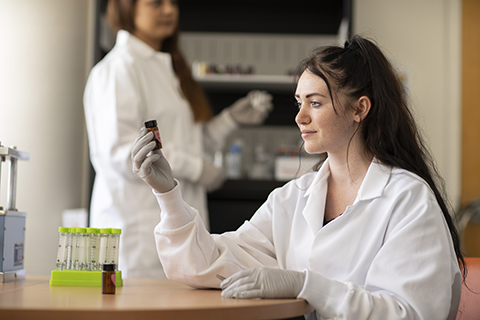This innovative new program—offered jointly by the Department of Chemical, Environmental and Materials Engineering and the Department of Industrial and Systems Engineering—is designed to enhance product design skills and competencies in three high-growth industrial sectors:
- Cosmetics & Consumer Products
- Pharmaceuticals & Biopharmeuticals
- Nanotechnology
Students will learn technical skills in formulation/product science, coupled with skills development in innovation, project management, and entrepreneurship. Through this multidisciplinary training, students will be equipped with the knowledge needed to diversify career opportunities in corporations and startups. The program is available to students with a bachelor’s degree from all majors; a bachelor’s degree in engineering in not required.
This innovative new program has received the Proctor & Gamble Education Award!
Mission
The mission of the MS in Product Design program is as follows:
- Provide high-quality graduate education in technical skills in formulation/product science coupled with innovation management skills.
- Conduct an industrially guided MS project, demonstrating a hands-on implementation of the skills and competencies learned.
- Equip the next generation of product engineers with the skills and competencies to develop new technologies and translate them into consumer and customer-relevant product development.
The program's mission will be accomplished by providing integrated and multidisciplinary scientific and technical education. Graduate students will be trained in the technical skills in chemical product design of formulated products, fundamentals of soft matter systems (polymers, emulsions, surfactants), aerosols, bio-nanotechnology, regenerative medicine, biomaterials and other emerging areas relevant to the three concentration areas.





